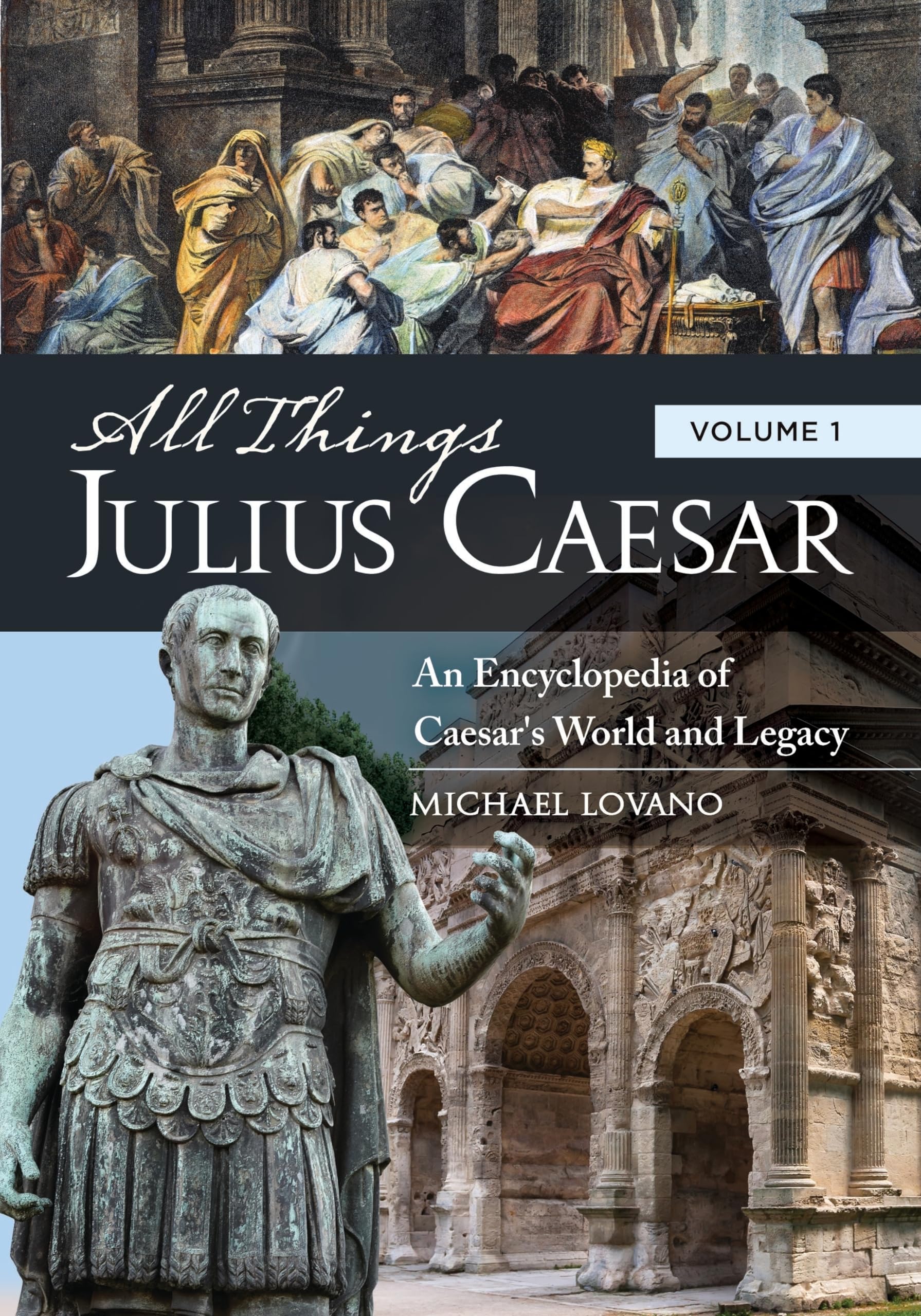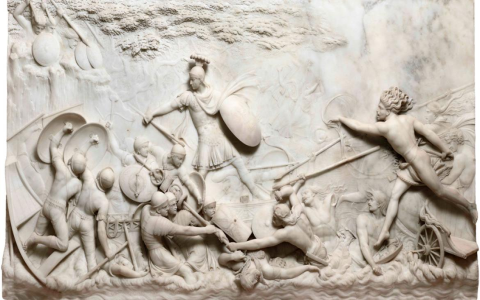Well, let me tell ya about Julius Caesar. He was quite the fella, no doubt about that. Born way back in 100 BC, in a family that was pretty well-known and important in Rome. But don’t go thinkin’ he had it all handed to him on a silver platter, no ma’am. This fella worked hard to get to where he was, just like anyone else who wants to make something of themselves.
Now, Julius Caesar, he wasn’t just some military man out there with a sword and a shield, oh no! He was also a writer and a historian. That’s right, he wrote down a lot of what he did during his campaigns, and that’s how we know so much about him. He didn’t just talk about his battles, he wrote it all down so folks could read it later. And let me tell ya, these writings are still important today. They’re the primary sources for understanding his life and what he did in the Roman Empire.
There’s a bunch of other folks who wrote about him too. Like Cicero, for example. He was a big-shot politician back then, and he kept a lot of letters, speeches, and notes that give us a peek into Caesar’s world. Then there’s Sallust, a historian, who also wrote about the time when Caesar was around. You can’t forget these fellas—they’re all part of what we call the “primary sources” for studying Julius Caesar’s life.

One of the most famous writers who talked about Caesar was Plutarch. He wrote a big ol’ book called “The Lives of the Noble Greeks and Romans.” In it, he talks about Caesar’s life in great detail. He didn’t just list facts, though. No, no! He added little stories and examples of how Caesar was as a man. If you want to understand what made Caesar tick, Plutarch’s writings are one of the best places to look.
Now, Caesar was no saint, I’ll tell ya that much. He had his enemies, too. One of his critics was Asinius Pollio, a historian from back in the day who didn’t think too highly of Caesar. The funny thing is, even though Pollio’s writings are mostly lost, Plutarch used them to help write his “Life of Caesar.” And let me tell ya, those lost writings of Pollio would’ve been somethin’ else if we had them today.
When it comes to Shakespeare and his famous play about Julius Caesar, folks sometimes forget that Shakespeare got a lot of his information from Plutarch’s writings. In fact, the main source he used was a translation of Plutarch’s “Lives,” done by Sir Thomas North in 1579. That’s where Shakespeare picked up his story for the play. So, you could say that without Plutarch, we wouldn’t have Shakespeare’s “Julius Caesar” the way we know it today.
But let’s talk about some of the other primary sources for Caesar’s life. Suetonius, for instance, wrote a book called “The Twelve Caesars.” It’s all about the emperors who came before and after Caesar. He’s got a whole chapter just for Caesar, and in it, he talks about how he ruled Rome and what kinda reforms he made. Not to mention, Suetonius gives a lot of juicy details about Caesar’s assassination. That’s right—he didn’t sugarcoat it one bit!
Another big name when it comes to writing about Caesar is Cassius Dio. He wrote “Historia Romana,” which covers a lot of Roman history, including Caesar’s rise to power. And let me tell ya, Dio didn’t hold back on his opinions either. He had a lot to say about Caesar, especially about how he handled his power. If you’re lookin’ for different viewpoints on Caesar’s life, Dio’s a good one to check out.
Then there’s Appian, who wrote “The Civil Wars.” Now, Appian’s work is important because it tells us a lot about the struggles Caesar faced on his way to power. He gives details about the battles, the betrayals, and the back-and-forth politics of the time. Appian’s account is a bit different from some of the others, but it still helps to round out the story of Caesar’s life.
But we can’t forget the most important day in Caesar’s life—the day he was assassinated. You’ve probably heard about it, right? March 15th, 44 BC. “The Ides of March.” It was a big ol’ day in Roman history. Caesar was stabbed to death by a group of senators, and that event is one of the most talked-about moments in all of history. It changed the Roman world forever.
All these writers and historians, they help us understand Caesar, but they don’t always agree on everything. Some thought he was a hero, while others saw him as a power-hungry tyrant. But no matter what you think of him, you can’t deny that Julius Caesar was one of the most important figures in history. And the best part? We still got these primary sources to look back on, to try to understand him and the world he lived in.
So, there you go! If you want to learn about Julius Caesar, you don’t have to go far. Just pick up a few of these books, and you’ll get a pretty good idea of who he was and what he did. Whether it’s his own writings or the accounts from other folks like Plutarch, Suetonius, and Cicero, these primary sources are key to understanding this great man of history.
Tags:[Julius Caesar, Primary Sources, Roman History, Plutarch, Suetonius, Cicero, Ancient Rome, History of Julius Caesar, Caesar Assassination, Roman Empire, Shakespeare Julius Caesar, Roman Generals]

























